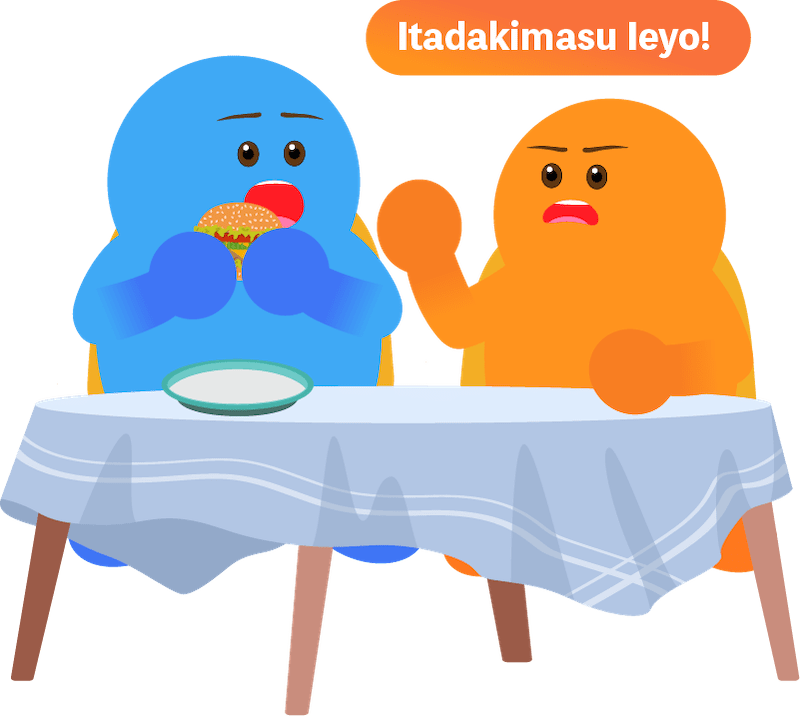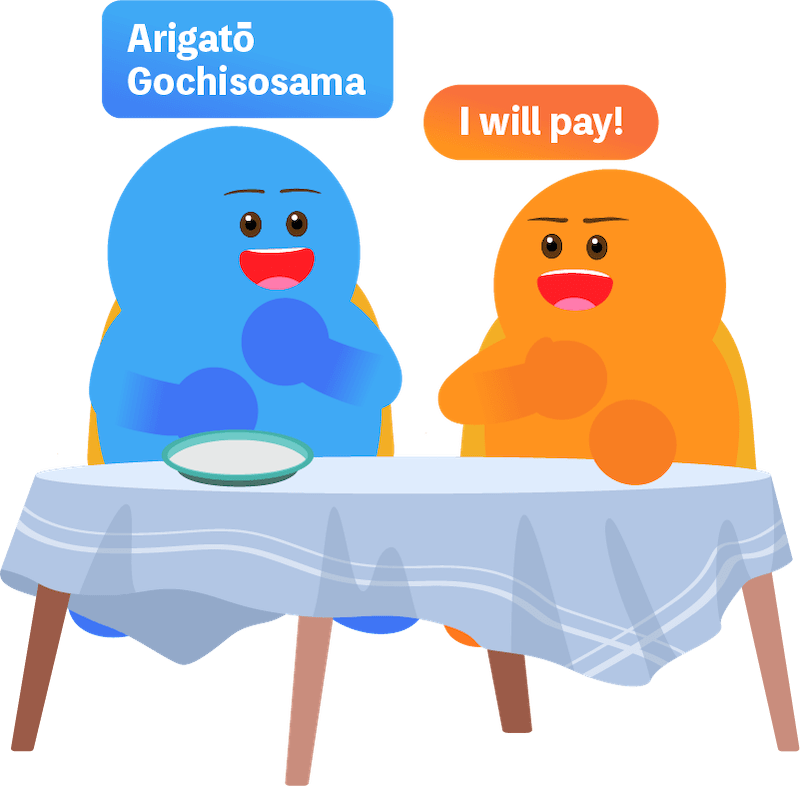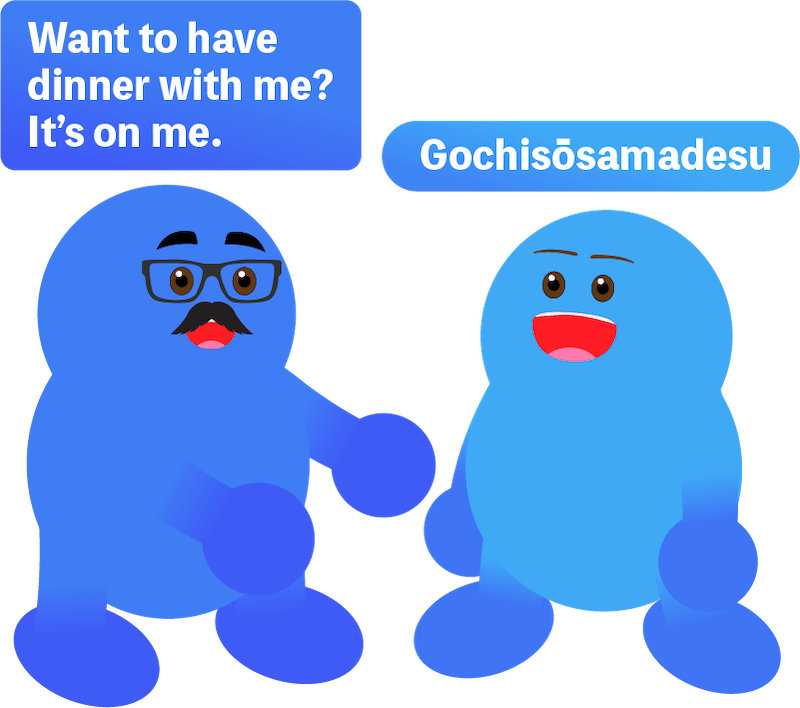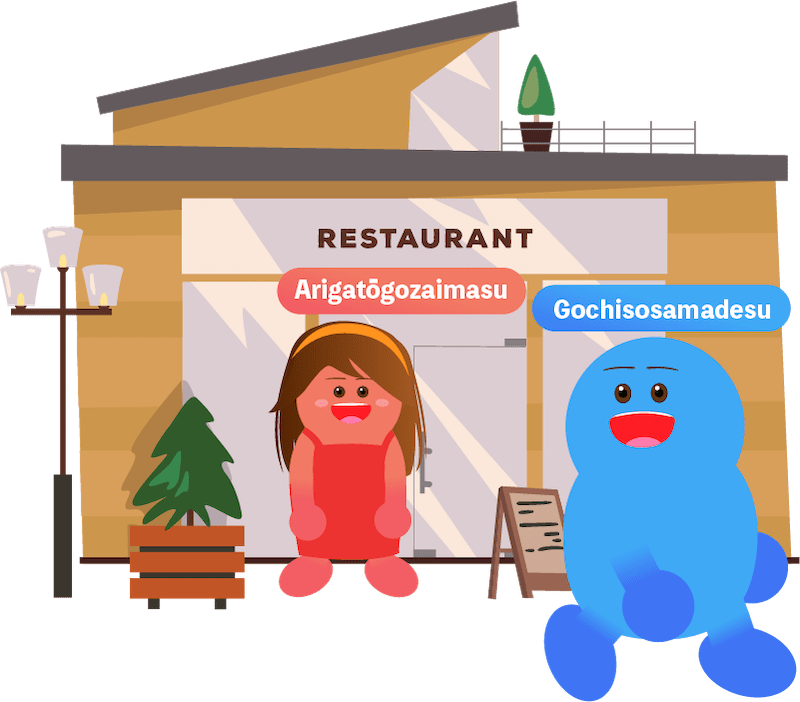In this lesson, I will teach you the greetings we use before and after eating.
Itadakimasu
When we eat in Japan, we always say Itadakimasu before we start eating.
While it's often translated as "Let's eat", the phrase actually means "I humbly receive".
It's a way of showing gratitude for the meal and it's not uncommon to put our hands together while saying it.
We're so used to this practice that we even say it when eating alone. And let me tell you, we take this tradition seriously.
Here's a story to illustrate just how serious:
I remember having lunch with a coworker at a restaurant once. I was starving and dove right into my meal as soon as it was served, completely forgetting to say Itadakimasu.
Then, my coworker looked at me in utter disbelief and said:

which means "Say Itadakimasu".
He had this look on his face like I was being incredibly rude and uncultured.
And honestly, he was right—I was being rude for not saying Itadakimasu.
So, Itadakimasu is a pretty big deal in Japan.
It's more than just a phrase. it's a sign of respect and appreciation for the food you're about to eat.
If you ever have the chance to eat with a Japanese person, remember to say Itadakimasu before you start eating.
When we finish eating, we say:

Gochisōsama
or in Keigo:
GochisōsamaDeshita
This phrase is often translated as "Thank you for the meal”.
The term Chisō in GoChisōSama originally comes from a Classical Chinese expression meaning "to run around on horseback". It's written 馳走 in Kanji.
In the past, preparing for an important guest involved rushing around to gather ingredients, a task that required significant effort, unlike today's convenience of buying food from nearby stores.
This effort in hospitality came to be expressed with the word Chisō, signifying a lavish meal prepared for a guest. Eventually, Gochisōsama evolved to mean appreciation for such hospitality.
Although Gochisōsama was traditionally directed at the person who prepared the meal, now it's a standard phrase used after eating, regardless of whether you're eating alone or with others, similar to how Itadakimasu is used.
There's another situation where Gochisōsama is used.
When someone pays for your meal.
For example, if you dine out with a friend and he pays for your dinner, you'd say Gochisōsama along with a Arigatō to thank them.

If your boss or senpai invites you out and says they'll pay, you can say Gochisōsamadesu.

Lastly, it's also polite to say Gochisōsama to restaurant staff when leaving.

So, when you're in Japan, don't forget to drop a Gochisōsama when you leave a restaurant. It's a nice touch and shows you appreciate the meal and service.
